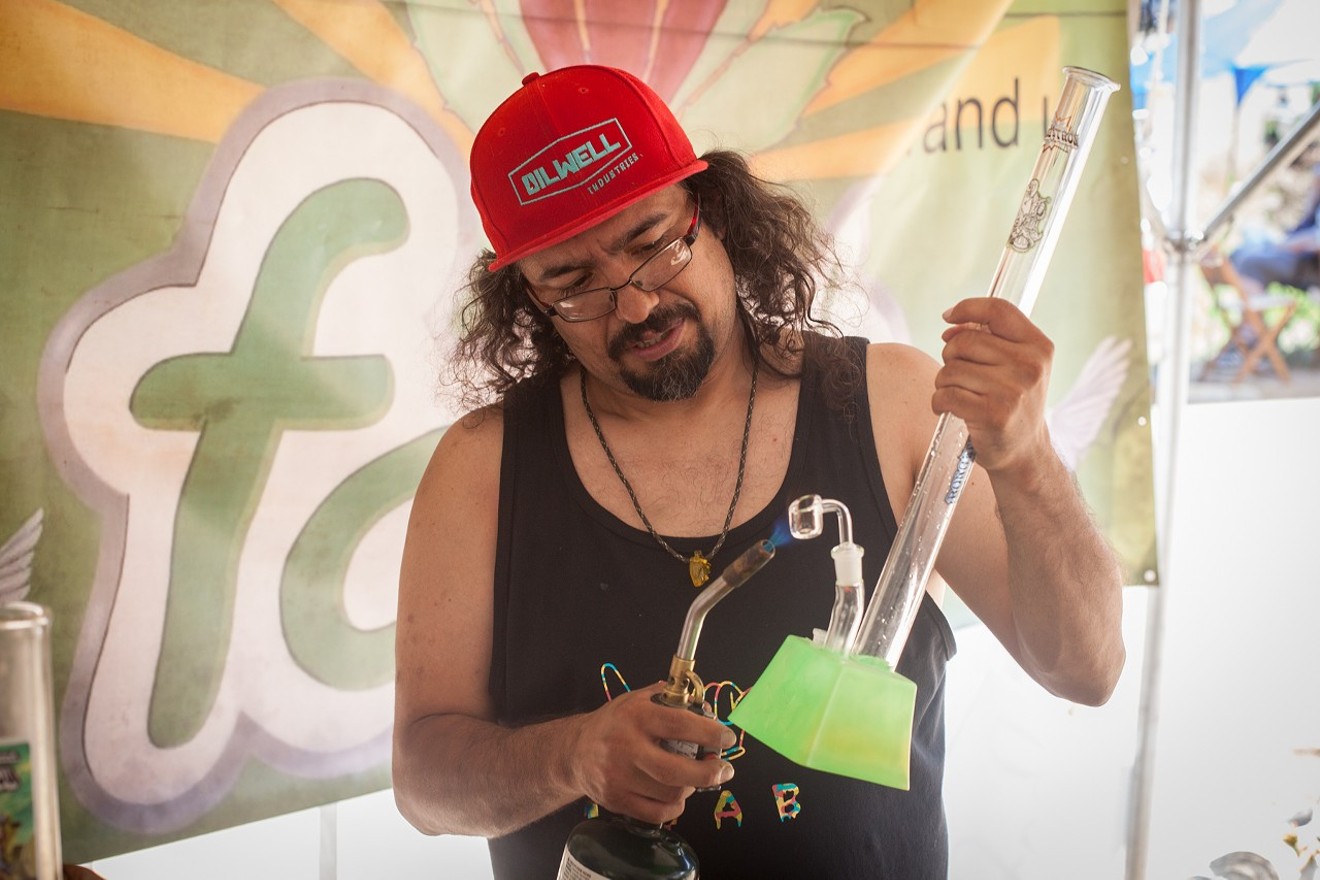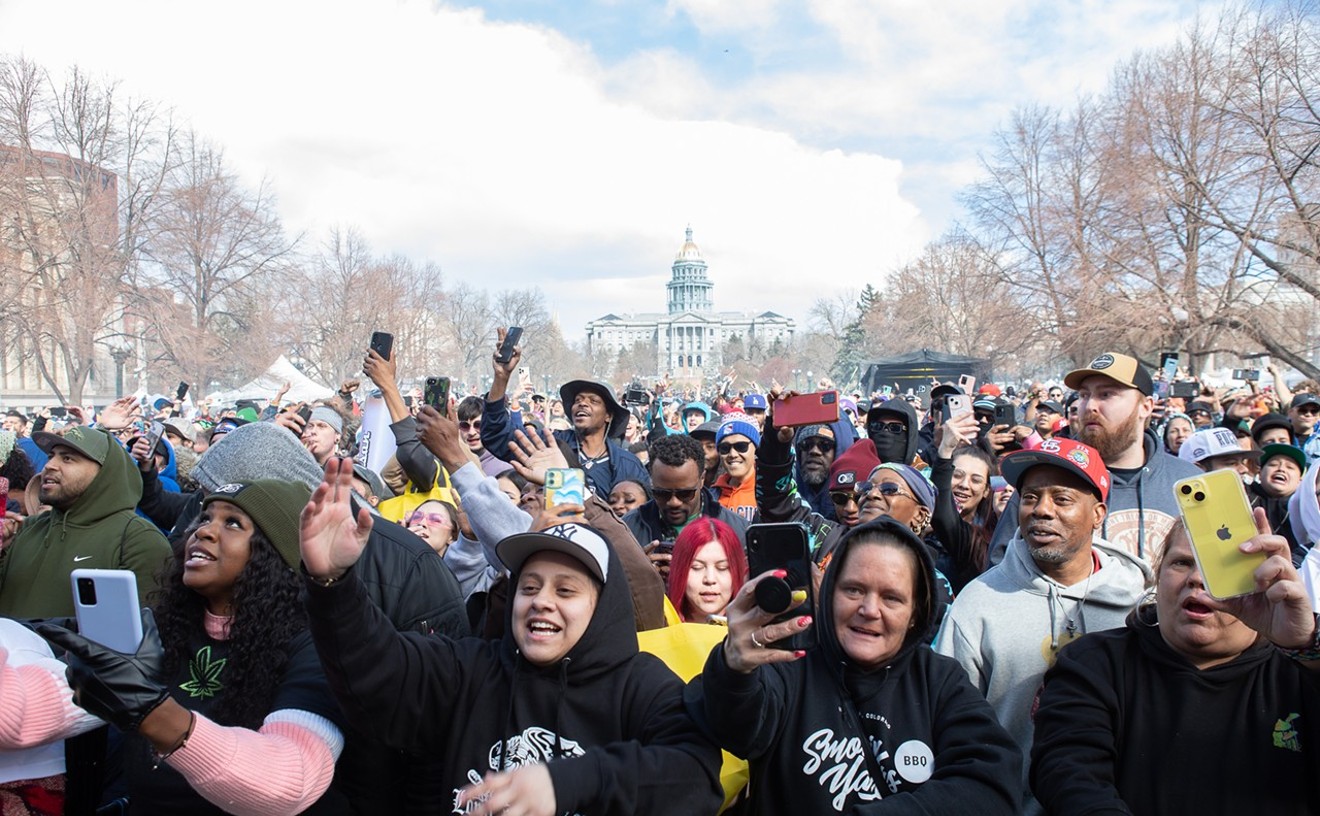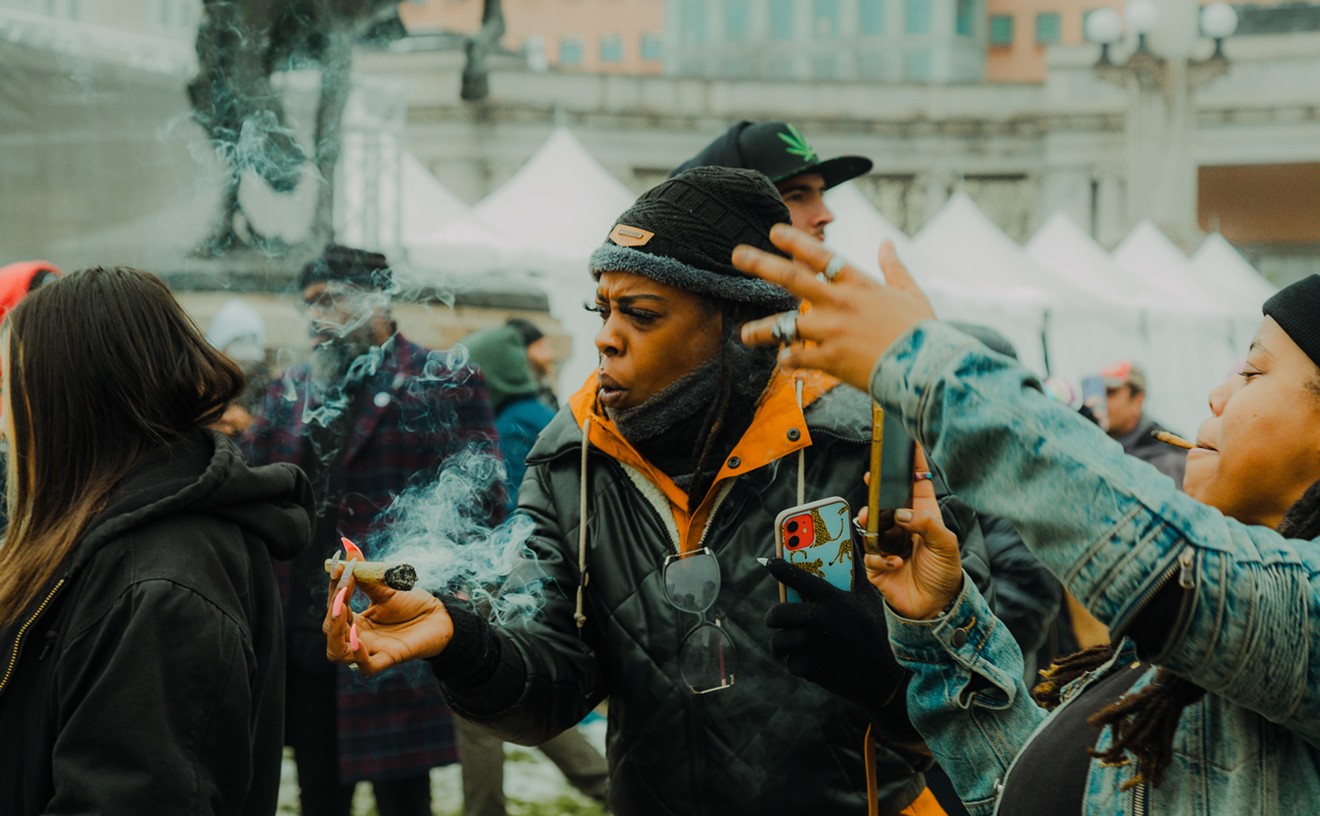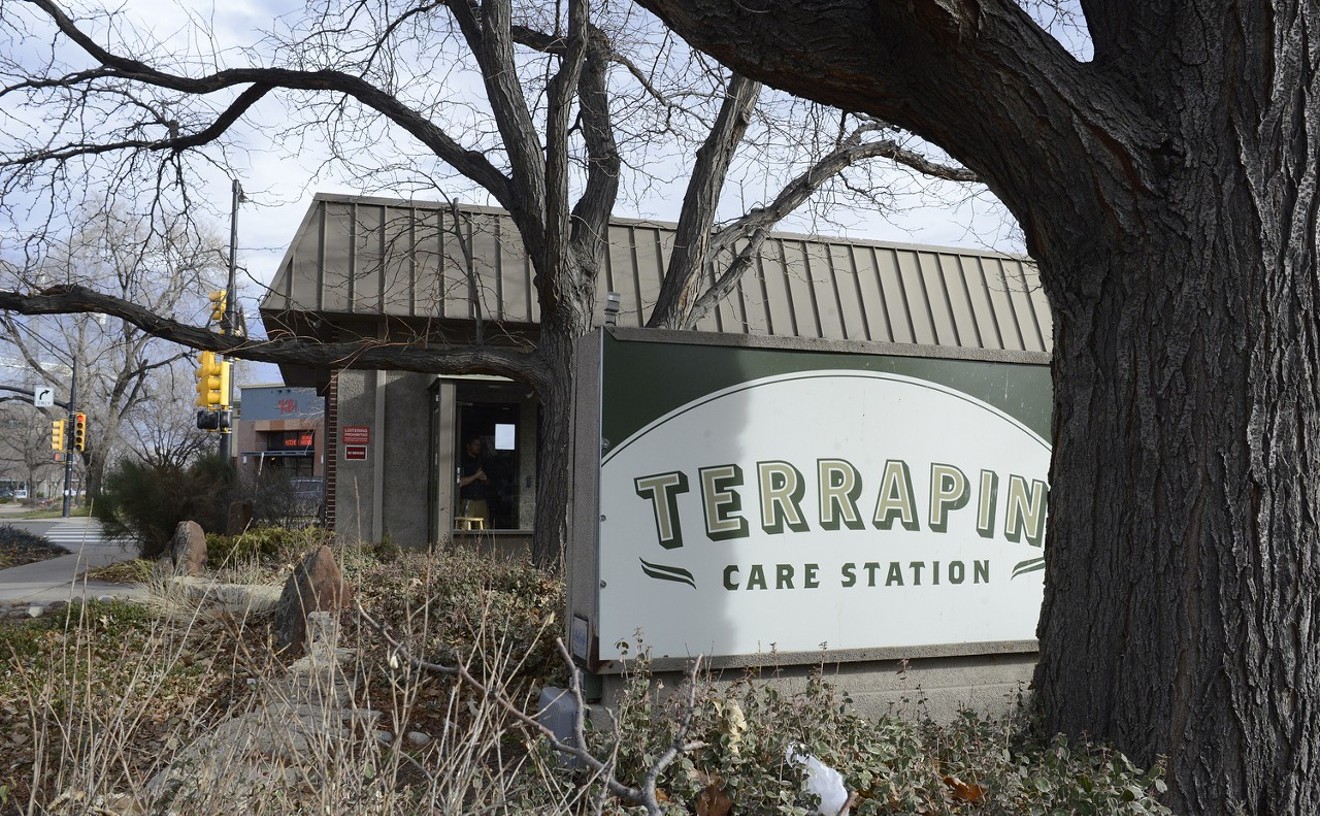Cannabis users waiting for places to socially consume in Colorado are in for a slow burn, despite recreational marijuana being legal here since late 2012 and dispensary tasting rooms and pot lounges receiving state approval in 2020.
While recreational pot sales began in January 2014, social consumption businesses weren't legalized at the same level until House Bill 1230 — a measure allowing dispensaries, restaurants, hotels, mobile lounges and other businesses to apply for social pot-use permits, allowing customers to buy up to one gram of flower, one-quarter gram of concentrate or edibles with no more than 10 milligrams of THC — took effect at the start of this year. But the vast majority of local governments have been slow to act on the opportunity.
The law requires towns or counties to opt in before any would-be social consumption businesses can apply for a license to operate. Denver and Colorado Springs had already put social consumption ordinances in place before the law passed (the only municipalities in Colorado to do so), but so far Denver has only one licensed lounge, with two in Colorado Springs.
Denver City Council is likely to address the state's social use rules, which are more expansive than the city's, at some point in 2020. However, Denver marijuana regulators want to learn more about the distribution of current marijuana business licenses as part of a social-equity assessment before revisiting social consumption, and that assessment is expected to last well into the year. Meanwhile, Colorado Springs's social consumption regulations are set to expire in 2024, and the city council there just decided to leave the rules as is instead of aligning with the state's rules or extending the licenses of the city's current pot lounges.
Denver "will probably take a little more time" because of the city's size and impact on the state's pot industry, notes Brandy DeLange, a legislative and policy advocate for the Colorado Municipal League. "A lot of folks are waiting to see how that shakes out," she says of other towns in the metro area, adding that "quite a few of them" are interested in Denver developments.
In the meantime, a handful of mountain communities and one small town near Denver could be the first municipalities to opt in to the state's new social use program.
Glendale, which is completely surrounded by Denver but an independent entity, has a Glendale City Council hearing on social use set for March 3. The owners of Smokin Gun Apothecary have announced that if Glendale approves the proposed measure, they're ready to apply for a tasting room license and hope to have the room open by April 20, or 4/20. According to Deputy City Manager Chuck Line, Glendale would only allow dispensary tasting rooms and not standalone pot lounges, cafes or other pot-friendly businesses.
Line expects about half of Glendale's six dispensaries to apply for social use licenses. Tasting rooms are the most likely result of the new law, he explains, as state location regulations for social pot use businesses are similar to the rules under which dispensaries currently operate, and a law bans active alcohol and marijuana sales licenses at the same location.
"We already have dispensaries, where everyone knows they have marijuana," he says. "Who knows, maybe in the future, we'll allow [social marijuana use] at some restaurants, but we have to see how these things operate first."
At least three towns in Summit County are in the midst of opting in or out of social consumption. The Dillon Town Council is considering opting in, according to the Summit Daily, and would also restrict social use licenses to dispensaries. Breckenridge is also exploring opting in, but more tepidly. Silverthorne, the town neighboring Dillon, has already begun opting out.
The Durango City Council started preliminary discussion of social consumption businesses in December, but still hasn't officially decided on whether to opt in or out.
Counties can also choose whether to opt in to the new law within their unincorporated areas. According to Colorado Counties Inc. police director Eric Bergman, some mountain counties have initiated the process. Eagle, Pitkin and Summit counties are looking into the measure with relatively open minds, he says, as is San Miguel County in the southwestern corner of Colorado.
"I think you'll see most of those businesses inside town limits, but a couple of [counties] are looking at it," Bergman adds.
As local governments consider whether to opt in, they need to weigh such issues as which type of license they want to create, how many licenses to distribute, and whether to allow smoking indoors at such businesses. While neither Denver's nor Colorado Spring's local ordinances permit smoking indoors (vaping is okay), Glendale would under its proposed measure.
As Colorado towns slowly explore the possibilities of social consumption, Line sees the challenges for potential business owners shifting from gaining the right to operate to the difficulties of running a profitable business.
"I would assume the next year, we're going to see a lot more regulations on this," Line predicts.
[
{
"name": "Air - MediumRectangle - Inline Content - Mobile Display Size",
"component": "12017618",
"insertPoint": "2",
"requiredCountToDisplay": "2"
},{
"name": "Editor Picks",
"component": "17242653",
"insertPoint": "4",
"requiredCountToDisplay": "1"
},{
"name": "Inline Links",
"component": "18838239",
"insertPoint": "8th",
"startingPoint": 8,
"requiredCountToDisplay": "7",
"maxInsertions": 25
},{
"name": "Air - MediumRectangle - Combo - Inline Content",
"component": "17261320",
"insertPoint": "8th",
"startingPoint": 8,
"requiredCountToDisplay": "7",
"maxInsertions": 25
},{
"name": "Inline Links",
"component": "18838239",
"insertPoint": "8th",
"startingPoint": 12,
"requiredCountToDisplay": "11",
"maxInsertions": 25
},{
"name": "Air - Leaderboard Tower - Combo - Inline Content",
"component": "17261321",
"insertPoint": "8th",
"startingPoint": 12,
"requiredCountToDisplay": "11",
"maxInsertions": 25
}
]












